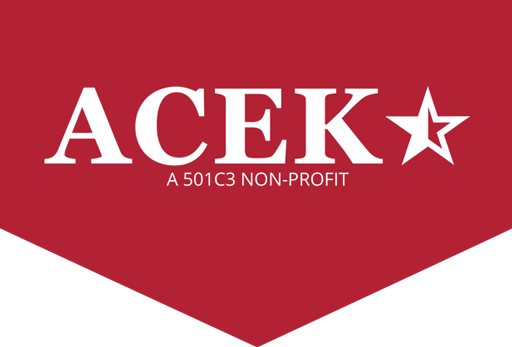Let’s step away from the U.S. for a moment to see what progressivism has done to Europe. Europe is hardly a monolith. It consists of distinct countries with distinct histories and cultures. Its defining Christianity experienced two major schisms — severing East from West and Protestants from Catholics — before more recently receding into the continental subconscious. The industrialization of its Eastern half lagged that of its West by more than a century. Bloody conflicts have ushered in three restructuring efforts in the past 400 years: The nation-state system arose in the seventeenth century, when the counterreformation ended in an exhausting stalemate. The Napoleonic Wars paved the way for the intricate balance-of-power games of the nineteenth century. A thirty-year, continent-wide civil war from 1914–44 paved the way for the European Union that defines the continent today. Those are historical facts.
More history: When the Iron Curtain of Communism impeding the freedom, prosperity, and development of Eastern Europe finally fell around 1990, most of its former captive states rushed to join the West. The U.S. welcomed this development wholeheartedly. As the process began to unfold, President George H. W. Bush cast the entire venture as an extension of the American idea, cleanly marrying responsibility and freedom. He extolled as virtues the Eastern European national spirit and national pride that communism had long tried to bury: “[L]eadership has a constant companion: responsibility. And our responsibility is to look ahead and grasp the promise of the future….Let Europe be whole and free….The nations of Eastern Europe are rediscovering the glories of their national heritage.” President Clinton picked up the baton. He pushed for the eastward expansion of both NATO and the EU to help usher the dream of “a Europe whole and free” into reality.
Their warm welcome and gracious attempt to share America’s foundational ideals succeeded — though not quite as Bush and Clinton might have hoped. For from the very moment that Europe positioned itself to adopt and adapt those ideals, European progressives schemed to hijack the experiment. The American vision embraced a return of European nationalist pride harnessed to a shared desire for a peaceful, prosperous, responsible future. The progressive vision sought a continent of “new Europeans” untethered to the petty desires, motivations, and elemental human nature culpable for the continent’s disastrous past.
Progressivism, like all totalitarian movements, has always played better in Europe than in the U.S. The EU, which had started in 1957 as an economic compact uniting France, West Germany, Italy, Belgium, Luxembourg, and the Netherlands, has since grown to encompass twenty-eight member states, over 500 million people, and detailed regulations governing all aspects of modern life. The EU’s raison d’être is the belief that war among economically and politically integrated states is unthinkable. To further that worthy goal, Europe’s progressive leaders have worked hard to denigrate selected ideas that helped motivate the continent’s most destructive wars — religion, nationalism, and cultural pride. They also degraded the role of elected government. Though every member state continues to hold elections, the bureaucrats in Brussels reserve to themselves the right to veto or fix any national legislation they deem improper.
Apparently unimpressed by the compactness of the American Constitution and Bill of Rights, the EU’s foundational documents spell out rights, responsibilities, government structures, and conflict resolution mechanisms in painstaking detail. Anything untouched remains fodder for its various regulatory bodies. It’s hard to think of a governmental structure more amenable to elite progressivism than this über-regulatory approach to micromanaging human behavior.
To the great credit of the EU’s founders, and thanks to the profound competence and professionalism of its bureaucrats, the painstakingly overregulated integration project succeeded beyond anyone’s wildest dreams. The Brussels-based Eurocracy became the finest bureaucracy the world has ever seen. Its very structure begged for progressive intervention. Europe’s progressives complied.
In the heady days following the end of history, state after state clamored to board the vehicle that promised to usher in Immanuel Kant’s utopian paradise of “perpetual peace.” Europe’s once fiercely independent sovereigns ceded as much of their sovereignty as they could as quickly as they could to the Progressive Empire. And for good reason. Europe had become an intensely pleasant place.
By the 1990s, Europe resembled nothing as much as a retirement village. Hitler had destroyed far more than Europe’s Jewish community. He had killed the continent’s desire to live. For centuries, Europeans had prided themselves on their steady, forward progress, their growing sophistication, their bourgeoning enlightenment. They had restrained religion, embraced science, tamed the oceans, and conquered the planet. Never before had a culture become so dominant. European philosophy, art, music, literature, and drama set standards that only fellow Europeans could dream of surpassing. Europeans redefined navigation, transportation, culture, medicine, discovery, architecture, commerce, economics, finance, technology, law, and warfare. Yet none of those achievements proved capable of preventing Europe’s slide into cruel barbarism of the vilest sort. Even worse, the very advances that had served as the greatest sources of European pride proved readily adaptable to wholesale, widespread, mass murder and torture. Their finest scientific discoveries gave rise to a new barbaric “crime against humanity:” genocide.
If the world’s most advanced, most sophisticated, most prosperous people could — seemingly overnight — become its most brutal, barbaric, and least civilized, what was the point of continued existence? European pride in itself, in its accomplishments, in the Western Civilization it had spent two millennia developing, evaporated. The still strong, still wealthy, still educated, still vibrant continent awoke from WW II hung over, filled with self-loathing at the behavior it could scarcely believe had been its own, unable to face its own demons. It conceded its own culpability while insisting that it was nevertheless a victim. It withdrew from global leadership, turned its home into an entitlement-driven adult playground, watched it age gracefully into a retirement village, and is now staring death in the face.
Only an American restoration can help Europe turn itself around. After all, America’s foundational ideals represent a distillation of the very best of Western civilization. A healthy dose of it could restore European vitality.
The decrepit, progressive continent, however, is a difficult patient. In a 2018 ceremony commemorating the end of WWI, French President Emmanuel Macron offered a fine expression of progressive morality: “Nationalism is a betrayal of patriotism. By saying our interests first, who cares about the others, we erase what a nation holds dearest, what gives it life, what makes it great and what is essential: its moral values.” His comment was widely seen as a rebuke to President Trump (also in attendance). But Macron’s opinion was less a rebuke than a declaration of divergent moral codes.
European restorationism — an even less developed movement than its American counterpart — has its work cut out for it. Europe’s terminal progressivism didn’t sneak up without warning. It’s been decades since Europe abdicated all responsibility for the two minimal requirements of sustainability: self-defense and procreation. By the end of the twentieth century, not a single European country could boast a fertility rate above the replacement rate of 2.1 live births per woman. The EU average hovered around 1.4 — even with immigrant populations from the Middle East, Africa, and Asia propping up the numbers.
The European record on defense spending is only marginally better. The US has long shouldered the burden for keeping Europe safe — and Americans have long resented it. Every recent President has criticized Europe’s inadequate contributions to its own defense, then done little about it. When President Trump mused out loud about reconsidering American spending on Europe’s defense in light of European outlays, the outcry on both sides of the Atlantic reached a fever pitch. The progressive intelligentsia was wrong. The NATO treaty commits twenty-two of the EU’s member states to defense budgets no less than 2% of GDP — hardly a high threshold by historical standards. Trump’s 2017 insistence that NATO members increase their defense budgets to meet that commitment yielded immediate (though potentially temporary) results.
Europe’s experience demonstrates why progressivism is inherently suicidal. Though rooted in a particular utopian strand of Western thought, progressivism posits historic Westernism as original sin. Progressives see Westerners as uniquely culpable for the pain and suffering of the world’s non-Western majority. The progressive elites running the EU are incapable of seeing evil emanating from sources other than Europe, the US, Christians, or Jews. They are convinced that Europe owes the world’s oppressed people compensation for centuries of oppression. Far from expressing pride in Western culture, history, and beliefs, they downplay Western contributions to the world.
With no interest in hosting a melting pot, Europe’s progressives are content instead to become fat, lazy, and elderly while enraged immigrants — mostly Muslim — live amongst them in squalor. The progressives then deny the obvious causes of the pent-up rage against them, forgive it as the understandable burden they must bear for their centuries of undeserved supremacy, and look the other way as angry immigrants target what remains of Europe’s once sizable Jewish community. The intense self-loathing of Western progressives makes self-preservation — much less propagation — undesirable. And somehow, as has so often been the case throughout European history, Europe’s Jews seem to bear a disproportionate share of the burden.
The overly bureaucratic, peaceful, prosperous, progressive Eurocracy was a godsend for post-war Europe. It was central to the rapid reintegration of post-Soviet Eastern Europe into the global economy. But the future it seeks is unsustainable. Some Europeans are beginning to notice. The UK’s Brexit vote of 2016 marked the first time in sixty years that a European nation had surveyed its cession of sovereignty, its loss of nationalism and patriotism, and perhaps most importantly its loss of pride, and screamed ENOUGH! If the Britons’ attempt to restore their sovereignty doesn’t qualify as restorationist, nothing does.
To the chagrin of progressive elites, the Brexiteers’ voices have echoed across the continent. Political parties, movements, and leaders showing a similar concern for national identity, integrity, and pride have won elections in Poland, Italy, Hungary, and Austria, while forcing realignments and policy shifts elsewhere. Unfortunately — though predictably — European pushback against progressivism has come in two distinct flavors: liberala nd illiberal. Illiberal resistance, while still a far smaller problem than progressivism, is deeply troubling. Much as progressivism itself has advanced far further in Europe than it has in the U.S., so too has the illiberal backlash it has called into existence. Furthermore, sentiment that’s simultaneously anti-liberal and anti-progressive has far deeper roots in European thought and history than it does in the U.S. The European illiberal resistance to progressivism represents a dangerous resurgence of the deeply ugly hate movements that the EU was formed to bury.
Yet as with the tiny but dangerous hate movements in the U.S., the resurgence of illiberal European hate movements serves the cause of progressivism. The European media, which consistently blurs the distinction between liberal and illiberal opposition to the progressive juggernaut, has convinced many Europeans that they have only two choices: A suicidal utopian progressivism fostering hard-edged socialism, Islamism, and anti-Western multiculturalism on the one hand; and militant racists preaching hatred as the key to civilizational survival on the other. Liberal voices find it increasingly difficult to break through. Eurosceptic, pro-sovereignty parties like Poland’s Law and Justice, Italy’s Northern League, the Dutch Freedom Party, and the Hungarian Civil Forum face constant slander — all while progressive Jeremy Corbyn has turned UK’s Labour into Europe’s most explicitly Jew-hating major party since the end of WWII.
Their onslaught is relentless. In Germany, Angela Merkel opened the floodgates to nearly a million poorly-vetted Syrian refugees in 2015 — only to “discover” that even those who arrived harboring few Islamist sympathies remain mired in anti-liberal cultural attitudes. Rape gangs have since become commonplace throughout Germany — and beyond. The situation in Sweden is even worse. In France, a powerful coalition of Muslims and progressives unleashed a wave of Jew hatred, reaching a crescendo during the summer of 2014, when massive demonstrations chanting “Death to the Jews” erupted across the country. The more recent “Yellow Vest” protests picked up where they left off. The half-million or so French Jews — Europe’s largest Jewish community — have been fleeing in record numbers, many seeking refuge in Israel. Yet the true threat goes far beyond France’s Jews. A mob empowered to drive a half-million French citizens out of the country will not stop before it topples the Fifth Republic.
Across the continent, Europe’s humble masses are beginning to rebel against its elites, fighting to restore liberalWestern civilization from the allied onslaught of Islamism and progressivism. Many of their methods involve the constructive rediscovery of past nationalism and pride; others push those concepts to the dangerous extremes that has wracked the continent in the past. But for restorationists fighting to restore and expand the American idea, these European masses and the nationalist political parties they have formed are the strongest potential allies — even if those nationalists cannot govern without including progressives or fascists in their parliamentary coalitions.
Dean Baquet, executive editor of the New York Times candidly told an NPR interviewer in December 2016: “We don’t get religion.” Baquet’s confession spoke for progressivism writ large. As irrelevant as religious motivation may be to the target audiences of NPR or the New York Times, it remains critical to large and important parts of the world. Specifically — and crucially — many immigrants from Muslim-majority countries arrive in the West fully committed to Islamic culture, motivated strongly by God’s will as they see it, believing that they’re inherently superior to their secular hosts, and intensely resentful of the opulence and decadence in whose midst they have landed. They have no interest in integrating, assimilating, or absorbing Western culture, and no desire to substitute Western values for their own. Their progressive European hosts, no longer confident in the soundness of Western civilization, believe that it would be immoral to impose Western values on non-Western arrivals. They are, however, willing to toss the Jews by the wayside, hoping to placate the Islamists with the blood of a sacrificial lamb.
Having eschewed the Western canon, progressives have forgotten how Troy fell. Europe has opened its gates to a million (and counting) “Syrian” refugees who alter the demographics of, and inject radicalism into, the continent’s existing Muslim communities. The Islamists — demonstrably superior strategists — have seeded the refugee flows with recruiters. A single, newly arrived, Islamist recruiter can generate many “home grown” fighters, sowing terror while allowing progressive advocates of unchecked immigration to pretend that the new arrivals are benign. Muslims who flee radical Islamists to build better lives for themselves and their families land in the West. Progressives then corral them into Muslim enclaves and mosques where Islamists radicalize their children.
Europe cannot hope to heal itself until it rediscovers itself, until it can take pride in Western traditions, until it can proclaim the superiority of classic liberal values, until it can elevate the safety of its own people above the needs or claims of outsiders. The alignment of the suicidal progressive retreat from Western Civilization and an aggressive Islamism threatens to topple not just the EU, but the very essence of scientific progress and liberalt hought that formed the pinnacle of European culture.
* This is a contributed article by American Restoration Institute




